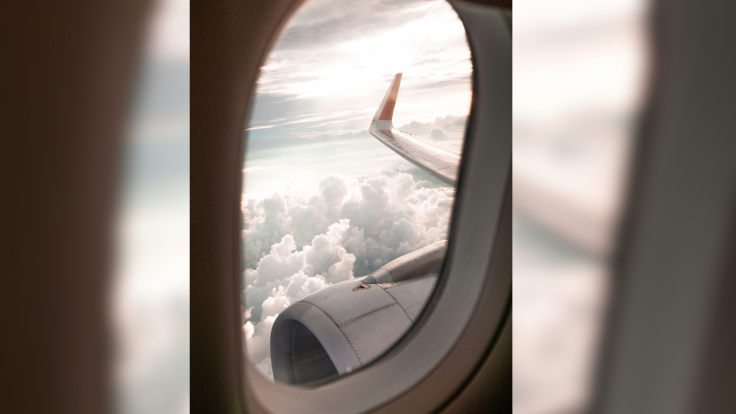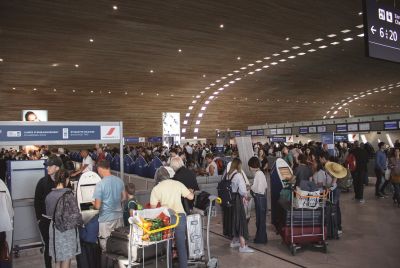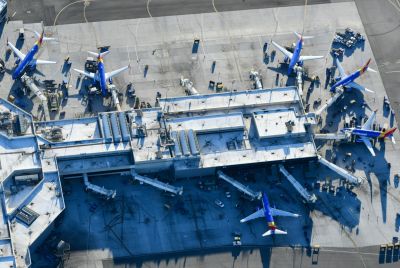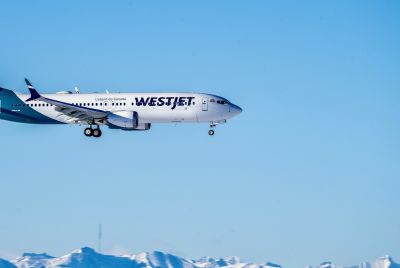Delta and United Sued for Millions as Flyers Claim Airlines Sold 'Fake Window Seats'
Passengers take Delta and United to court over claims they charged more for seats with no real windows

A class-action lawsuit has been filed in New York against Delta Air Lines and United Airlines after passengers alleged, they were misled into paying premium fares for window seats that had no windows.
The legal complaint, lodged this week in Manhattan federal court, accuses both carriers of deceptive practices. Passengers say they were charged extra for 'window seat' reservations only to discover the cabins were designed with solid walls in place of windows.
According to the plaintiffs, the alleged misrepresentation stretches back several years and could involve thousands of passengers. Lawyers claim the airlines not only charged higher fees for the disputed seats but failed to disclose that passengers would have no outside view during their journey. The case seeks millions of dollars in damages.
What Happened
Court documents allege that Delta and United knowingly marketed certain seats on long-haul and domestic flights as window positions, even though those sections of the fuselage had no glass. Several passengers submitted booking receipts and photographs of their seat positions showing solid panels where windows should have been.
The claimants argue they would never have paid the higher ticket prices if they had been properly informed. Their lawyers contend that the airlines benefitted from 'systematic concealment' and turned what should have been standard seating into a source of unfair revenue.
Who Is Involved
The suit has been brought by a group of flyers represented by consumer-rights law firm Hagens Berman, which has previously filed large-scale actions against technology and automotive companies. Named plaintiffs include business and leisure travellers who say they selected window seats specifically for comfort, rest, or to assist with flight anxiety.
Both Delta and United have declined to comment directly on the litigation but issued separate statements saying they are reviewing the claims. United stressed that 'seat maps on our booking system reflect aircraft design' while Delta said it 'takes customer transparency seriously'.
When and Where
The case was filed on Wednesday, 20 August 2025, at the US District Court for the Southern District of New York. Lawyers said they chose New York because both airlines operate a significant number of international routes through airports in the state, and because many passengers booked flights from there.
Why Passengers Are Angry
For many travellers, window seats carry more than symbolic value. Families often choose them for children, while nervous flyers rely on outside views for reassurance. In addition, window positions generally avoid disruption from aisle traffic. Plaintiffs argue that by selling 'fake windows', airlines stripped away those advantages while pocketing higher fees.
The complaint highlights that some so-called window seats were located in sections near emergency exits, lavatories, or fuselage joins where windows are structurally absent. Yet those seats remained categorised as 'window' on online booking platforms.
How the Case Could Play Out
Legal experts note that while airlines face frequent lawsuits over delays, cancellations and hidden charges, few cases have focused on seat descriptions. If successful, the case could set a precedent requiring carriers to disclose cabin design more precisely.
The lawsuit seeks class-action status, which would allow thousands of passengers to join if certified by the court. Damages could run into tens of millions of dollars, particularly if judges determine that the practice was widespread and intentional.
Consumer-rights advocates say the case underscores a larger issue of transparency in air travel, where passengers often pay additional fees for seat selection, luggage, or priority boarding. They argue that 'fake window seats' are part of a pattern of nickel-and-diming that has frustrated flyers worldwide.
Wider Implications
Industry analysts note the lawsuit comes at a time of heightened scrutiny on US airlines, with regulators considering tighter rules around seating disclosures and fees. If Delta and United are forced to pay compensation, other carriers may be pressured to adjust their booking systems to clearly indicate windowless seats.
For now, affected passengers are being urged to keep records of bookings and boarding passes. The first court hearing is expected later this year, where judges will decide whether the case qualifies as a full class action.
© Copyright IBTimes 2025. All rights reserved.





















